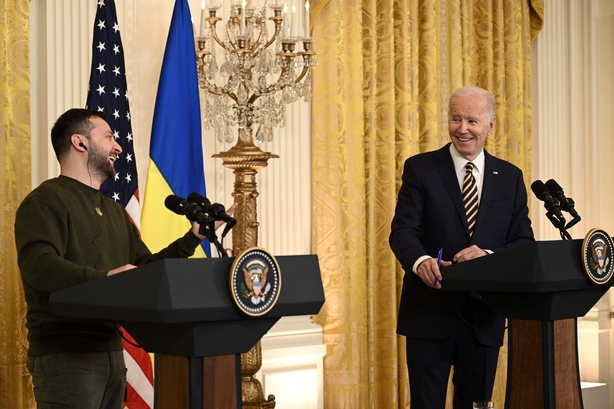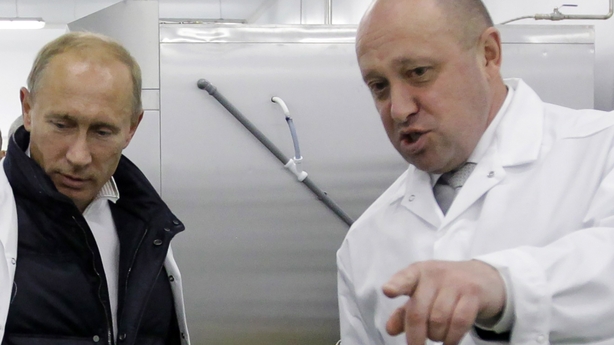The Democratic-controlled House of Representatives has approved a €42bn ($45bn) aid package for Ukraine, as President Volodymyr Zelensky returned from Washington with the promise of Patriot missiles to help fend off Russia's invasion.
The measure, part of a €1.6tn ($1.7tn) government funding bill that passed the Senate a day earlier, will now go to President Joe Biden, who has said that he will immediately sign it into law.
The military and economic assistance follows US aid worth around €47bn ($50bn) sent to Ukraine this year, as well sanctions imposed on Russia by the West that now include a cap on Russian oil prices.
Russia responded to the cap by threatening to cut oil output by 5%-7% early next year through halting sales to countries that support the measure.
President Zelensky has long sought Patriot surface-to-air missiles to help counter Russian air strikes, which have razed cities, towns and villages during 10 months of conflict, and knocked out power and water supply across the country over the past three months.
Mr Zelensky said in his Telegram channel: "We are coming back from Washington with... something that will really help."

President Zelensky's visit to Washington this week
However, US officials say that the single Patriot battery that President Joe Biden told Zelensky would be supplied to Ukraine would not change the course of the war.
Russia agreed, insisting that the weapons system would not prevent Moscow from achieving its goals.
"Our goal is not to spin the flywheel of military conflict, but, on the contrary, to end this war," Russian President Vladimir Putin during a visit to the weapons manufacturing hub of Tula.
He urged defence industry chiefs to boost output of weapons for the front.
"We will strive for an end to this, and the sooner the better, of course", the Russian leader added.
These comments drew an immediate and withering response from the White House, with spokesman John Kirby dismissing Putin's comments, saying that the Russia leader has "shown absolutely zero indication that he's willing to negotiate" an end to the war.
Wagner group
The White House said yesterday that a private Russian military company, the Wagner Group, took delivery last month of infantry rockets and missiles from North Korea to help bolster Russian forces in Ukraine.
Britain said it reached the same conclusion and condemned the move. But Wagner's head, Yevgeny Prigozhin, dismissed the talk as "gossip and speculation".

North Korea's foreign ministry denied the report, calling it "groundless", the official KCNA news agency reported.
It is the United States that is "bringing bloodshed and destruction to Ukraine by providing it with various kinds of lethal weapons", a ministry spokesperson said in a statement carried by the KCNA.
The Russian mission to the United Nations in New York did not respond to a request for comment.
Fight for Bakhmut
On the battlefront, the General Staff of the Ukrainian Armed Forces said on Facebook yesterday that fighting in the eastern Donetsk region remained focused on Bakhmut and nearby Avdiivka.
Near Bakhmut, Russian forces shelled about ten towns, while close to Avdiivka, they pounded the towns of Kostyantyivka and Maryinka as well as Vodyane and Nevelske, the Ukrainian military said. Reuters was not able to confirm the battlefield reports.
Donetsk is one four regions that Moscow claimed to annex after so-called referendums in September that were rejected as bogus and illegal by Kyiv and the West.
Russian Chief of General Staff Valery Gerasimov said yesterday the frontline in Ukraine was stable, and that Moscow's forces had concentrated on "completing the liberation of the territory of the Donetsk People's Republic".

